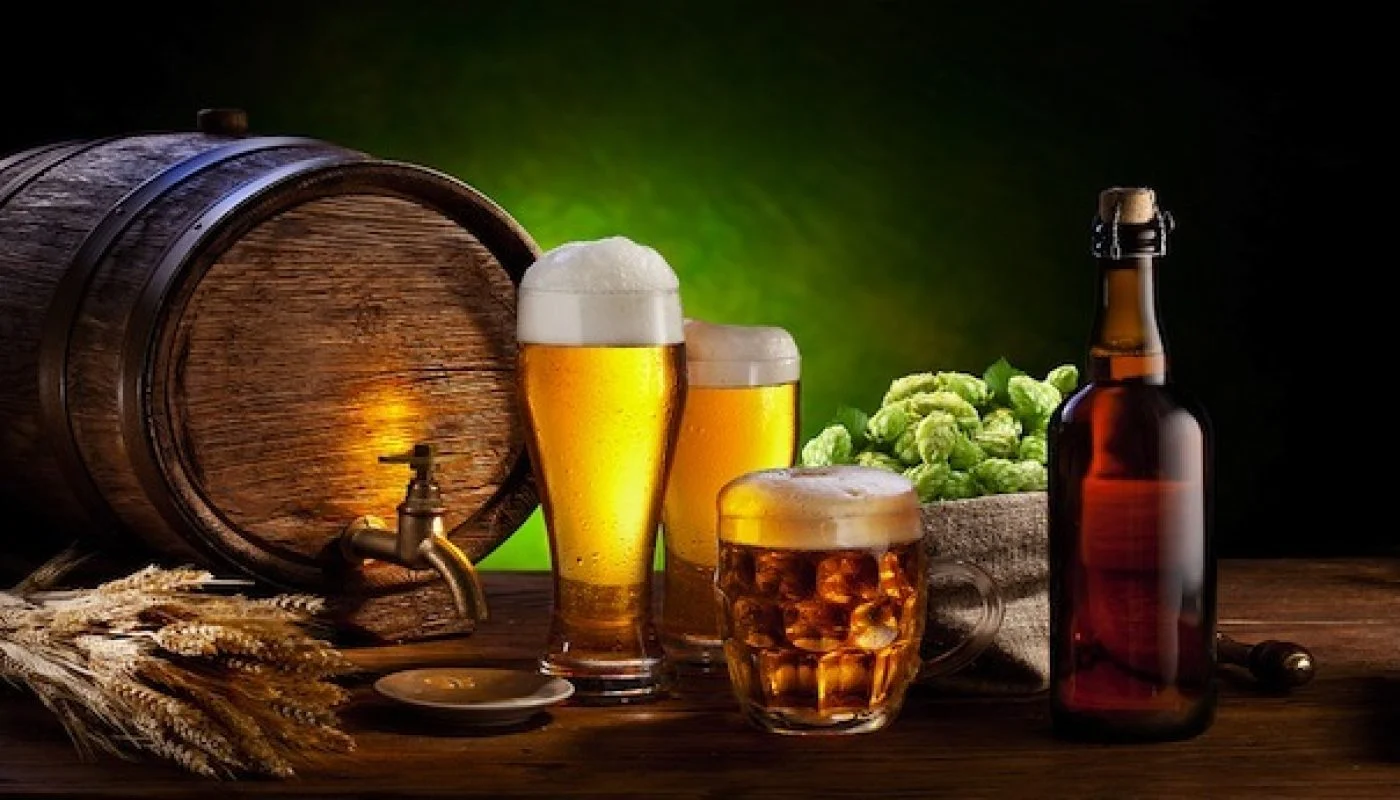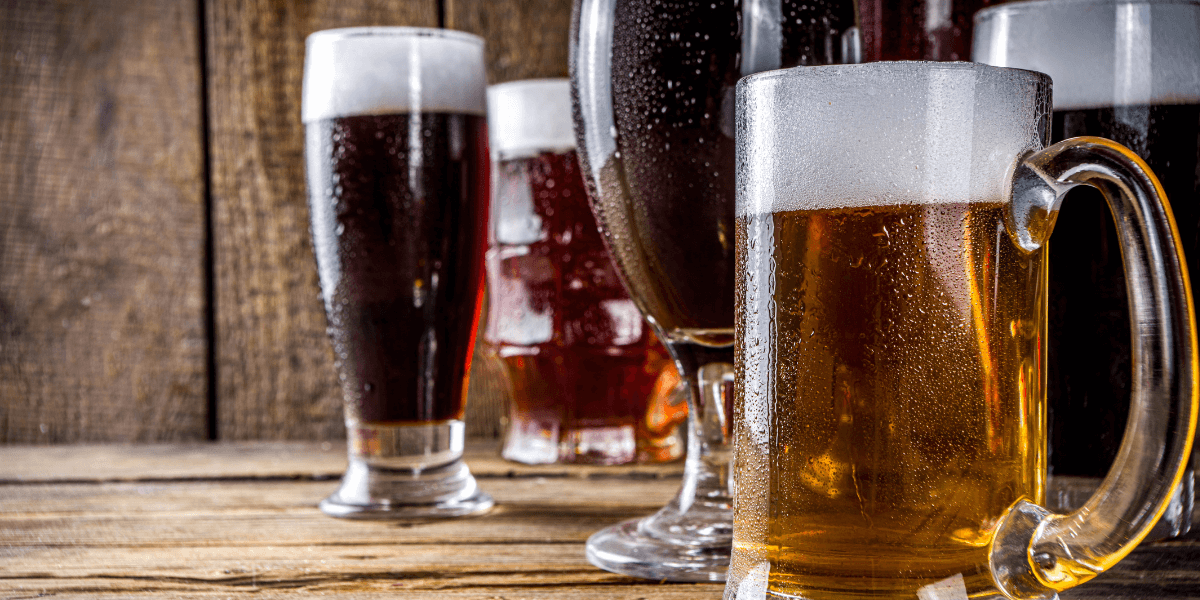
As an avid homebrewer, I can confidently say that brewing beer is both an art and a science. A lot of the attention is often focused on ingredients like hops, malts, and yeast. However, one key ingredient that deserves equal consideration is water.
It’s often overlooked by many beginners, yet it makes up over 90% of beer, and its quality can significantly impact the final taste. In this article, I want to share some tips and knowledge that helped me understand the importance of water when brewing.
Getting started with brewing water is the first step to creating better beer, and it’s something that should be prioritized right from the start.
The Impact of Water on Your Beer
When I first began brewing, I didn’t realize just how much influence water has over the final product. Water quality goes beyond just cleanliness. The mineral content in your water plays a huge role in how the flavors in your beer develop.
Different types of water will interact differently with the ingredients, affecting everything from mouthfeel to clarity. For example, water that is high in calcium can help yeast thrive during fermentation, leading to a cleaner taste and a better fermentation process. On the other hand, water with too much sulfate can impart a dry, bitter flavor that might not be desirable for certain beer styles.
Another factor I quickly learned about was chlorine and chloramine. These compounds are often used to treat tap water, and while they might make the water safe to drink, they can severely impact the flavor of your beer.
If you’re getting started with brewing water, I highly recommend testing your water for chlorine or chloramine and neutralizing them before using the water in your brewing process.
What You Need to Know About Brewing Water Chemistry
Understanding the chemistry of brewing water is a crucial part of becoming a better brewer. Water consists of several elements, such as calcium, magnesium, sodium, chloride, and sulfate, all of which contribute to the overall flavor and balance of your beer. When getting started with brewing water, the first thing I suggest doing is figuring out the mineral profile of your local water.
Water Profile: The Key to Customizing Your Beer
To brew the best beer, you need to tailor the water to the specific style of beer you are making. For example, if you’re brewing an IPA, you may want water with a higher sulfate concentration because it enhances the dry, bitter flavors. For stouts and porters, chloride is the mineral to focus on since it helps accentuate sweetness and give the beer a smooth mouthfeel.
Water profiles can differ dramatically from one location to another. If you live in an area where the water has a high mineral content, you may need to reduce certain minerals to avoid overpowering flavors. On the other hand, if you live somewhere with soft water, you’ll likely need to add minerals to get the right balance for your beer style.
Once you’ve determined your water profile, you can begin to make adjustments for the type of beer you are brewing. For example, for a pale ale or a hoppy beer like an IPA, you’ll typically want to adjust the water to emphasize bitterness by raising the sulfate levels. If you’re brewing a dark beer like a porter or stout, you might want to lower the sulfate levels and add chloride to achieve a rounder and fuller mouthfeel.
pH Levels and Water
In addition to mineral content, pH is another critical factor to consider when getting started with brewing water. The pH of your water affects the efficiency of the mashing process. When the pH is too high or too low, it can lead to poor sugar extraction, which impacts fermentation and the final taste of your beer. Most brewers aim for a mash pH between 5.2 and 5.6, which is optimal for enzyme activity during the mash. Keeping track of your water’s pH can be done with simple pH strips or a more precise pH meter. This will help ensure that you are extracting the sugars efficiently and producing a balanced beer.
Testing Your Water
The next step after understanding the importance of brewing water is testing it. Many homebrewers don’t realize that their tap water could be full of compounds that affect their beer’s flavor. To make informed decisions about adjusting your water, it’s essential to have a water report from your local municipality or get your water tested.
You can purchase water testing kits that will help you understand the concentrations of minerals like calcium, magnesium, sodium, and chloride in your water. By having this information, you can begin to adjust your water to suit your brewing needs.
If your water has high levels of certain minerals that you don’t need, you can dilute it with distilled water or treat it with additives to bring those levels down. For example, if your water contains high amounts of bicarbonate, which can make the beer taste harsh, you may need to neutralize it by adding acid.
Treating Chlorine and Chloramine
Chlorine and chloramine are commonly used to treat municipal water and make it safe for drinking, but they can leave a distinctly undesirable taste in your beer. During my early brewing days, I learned that these compounds can give your beer a medicinal or plastic-like flavor, which is definitely something to avoid.
Thankfully, chlorine and chloramine are easy to neutralize by either boiling your water or using Campden tablets. These tablets release sulfur dioxide, which neutralizes chlorine and chloramine, making the water suitable for brewing.
Adjusting Your Water
Once you’ve tested your water and identified the necessary adjustments, the next step is to make those changes. I recommend investing in water treatment products like salts, acids, and bases that allow you to fine-tune your water.
Some of the most commonly used brewing salts include calcium sulfate, calcium chloride, Epsom salt, and gypsum. These salts help adjust the water profile for specific styles of beer, so they’re indispensable tools for any brewer who wants to perfect their water.
Additionally, if you’re brewing specific styles like IPAs, stouts, or lagers, it’s helpful to research the ideal water profiles for those beers. Many resources and brewing software tools can help you figure out what adjustments you need to make to your water. With a little time and practice, you can learn to manipulate your water’s composition to make the best beer possible.
Conclusion
Getting started with brewing water can feel overwhelming at first, but once you understand the basics of water chemistry and how it influences the brewing process, it becomes much easier to manage. Properly adjusted water will lead to better fermentation, enhanced flavors, and a smoother mouthfeel. By testing your water, adjusting its mineral content, and understanding its pH, you’re taking the first important steps toward producing truly great beer.
As you continue your brewing journey, remember that the water you use is just as important as the hops, malt, and yeast. Don’t overlook it—take the time to understand your water, and you’ll start seeing noticeable improvements in the quality of your brews. Cheers to getting started with brewing water and the many great beers it will help you create!




